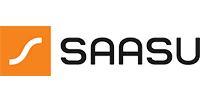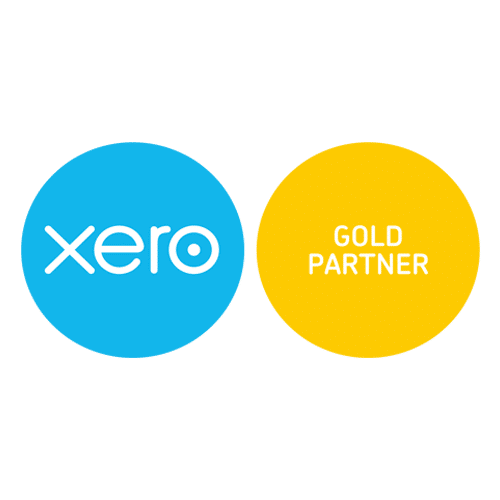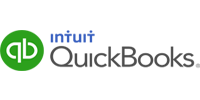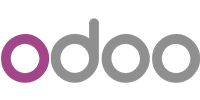





The financial industry is experiencing a profound metamorphosis, and within this transformative landscape, the pivotal roles of Certified Public Accountants (CPA’s) and accountants stand out prominently. As technological advancements, regulatory changes, and shifting market dynamics continue to shape the financial sector, the expertise and adaptability of CPA’s and accountants become paramount. These professionals find themselves at the forefront of a revolution that demands a fusion of traditional financial acumen with cutting-edge technological proficiency. The ever-growing complexity of financial systems and the increasing reliance on data analytics underscore the need for CPA’s and accountants to be not just practitioners of established principles but also adept navigators of a rapidly evolving financial landscape.
In this era of unprecedented change, the traditional roles of CPA’s and accountants are expanding to encompass a broader spectrum of responsibilities. Beyond the meticulous management of financial records, these professionals are now integral strategic partners, providing insights derived from data analysis and helping businesses make informed decisions. The convergence of finance and technology places CPA’s and accountants in a unique position to harness innovative tools, ensuring that they not only meet the current demands of the industry but also proactively shape its future trajectory. The unfolding narrative in the financial realm signifies not just a transformation of industry practices but a redefinition of the very essence of the CPA’s and accountant’s role in driving financial success and sustainability.
I. Technological Innovations in Bookkeeping
As we step into the digital era, traditional bookkeeping practices are making way for more efficient and accurate solutions. Cloud-based accounting software, artificial intelligence (AI), and automation tools are becoming integral components of modern accounting practices.
Harnessing Cloud-Based Solutions
Cloud-based platforms offer a secure and flexible environment, allowing CPA’s to access financial data from anywhere. Tools like QuickBooks and Xero are gaining prominence, automating mundane tasks such as data entry and reconciliation, thereby freeing up time for more strategic financial analysis.
Integration of AI and Automation
The incorporation of AI and automation in bookkeeping processes is revolutionizing the industry. These technologies can analyze vast datasets in a fraction of the time it would take a human, reducing errors and improving overall accuracy. With machine learning algorithms, these systems can even predict patterns and anomalies, providing insights that go beyond traditional bookkeeping capabilities.
The advantages of AI and automation extend beyond efficiency. By automating routine tasks, CPA’s can dedicate more time to interpretive analysis, offering valuable insights to clients and helping them make informed financial decisions.
II. Shaping Client Relationships in the Digital Age
While technology plays a pivotal role, the essence of bookkeeping lies in the relationships built with clients. The future demands a balance between advanced technology and personalized services. Emphasizing client education about the benefits of digital tools can foster trust and transparency.
Collaborative Platforms
Collaborative platforms that facilitate communication between CPA’s and clients are becoming indispensable. Secure portals for document sharing, real-time messaging, and virtual meetings enhance the overall client experience, establishing a more collaborative and communicative relationship.
In the digital age, client interactions go beyond the occasional meeting. Constant communication through secure channels builds a stronger rapport, allowing CPA’s to understand the intricacies of their clients’ financial situations and offer tailored advice.
III. The Strategic Role of Bookkeeping in Tax Returns
Bookkeeping serves as the foundation for seamless tax preparation. As tax regulations evolve, CPA’s and Enrolled Agents rely on accurate and up-to-date financial records to navigate the complexities of the tax landscape.
Compliance in the Digital Age
The digitalization of bookkeeping has significant implications for compliance. Automated systems can assist CPA’s in staying abreast of changing tax laws and regulations, reducing the risk of non-compliance. Regular updates and alerts within software platforms help ensure that tax returns are filed accurately and in a timely manner.
The integration of bookkeeping with tax preparation software streamlines the process, minimizing errors and maximizing deductions. This strategic approach not only ensures compliance with the latest tax regulations but also positions CPA’s as trusted advisors capable of providing comprehensive financial guidance.
IV. Challenges and Solutions in the Bookkeeping Landscape
As bookkeeping embraces digital solutions, the vulnerability to cybersecurity threats increases. CPA’s and accountants must prioritize the security of financial data, employing robust encryption and authentication measures. Regular training on cybersecurity best practices is crucial to mitigate risks and protect sensitive client information.
Adapting to Change
The rapid pace of technological advancements requires CPA’s and accountants to be adaptable. Continuous learning and upskilling in emerging technologies ensure that professionals stay ahead of the curve. Firms that embrace change and invest in training will be better equipped to navigate the evolving landscape of bookkeeping.
Adapting to change is not only about technological advancements but also about evolving client needs and industry regulations. A proactive approach to staying informed and continuously improving skill sets is essential for remaining relevant and competitive in the ever-changing world of finance.
V. The Human Touch in a Digital World
Balancing Technology and Personalized Service
While technology provides unprecedented efficiency and accuracy, the human touch remains paramount. Clients value the expertise and guidance that CPA’s bring to the table. Striking a balance between technology-driven solutions and personalized service is key to building lasting client relationships.
Education and Empowerment
Client education about the benefits of digital tools is an essential component of the evolving CPA-client relationship. By empowering clients to understand and leverage technology, CPA’s enhance collaboration and ensure that clients make the most of available resources.
In summary, the future trajectory of bookkeeping at Meru Accounting hinges on the seamless integration of technological advancements, meticulous client relationship cultivation, and strategic tax preparation. The firm’s commitment to leveraging cloud-based solutions, artificial intelligence, and automation underscores its dedication to operational efficiency, all while maintaining a client-centric ethos that places the human touch at the heart of its accounting practices.
As Meru Accounting navigates the evolving industry landscape, addressing challenges such as cybersecurity and prioritizing continuous learning positions the firm not only to survive but to thrive. Embracing change with a sophisticated blend of technology and unwavering client focus, Meru Accounting is poised to redefine the paradigm of success in the digital era, where the synergy between technological proficiency and personalized service sets the stage for enduring excellence.
Q1: How is technology influencing the future of bookkeeping at Meru Accounting?
A1: Technology is playing a pivotal role in shaping the future of bookkeeping at Meru Accounting. The firm is integrating cloud-based solutions, artificial intelligence (AI), and automation tools like QuickBooks and Xero to enhance operational efficiency and accuracy in financial management.
Q2: What benefits do cloud-based solutions bring to bookkeeping practices at Meru Accounting?
A2: Cloud-based platforms provide a secure and flexible environment, allowing our CPA’s to access financial data from anywhere. These solutions, such as QuickBooks and Xero, automate routine tasks like data entry and reconciliation, freeing up time for strategic financial analysis.
Q3: How does the integration of AI and automation impact bookkeeping processes at Meru Accounting?
A3: The incorporation of AI and automation revolutionizes bookkeeping by analyzing vast datasets efficiently, reducing errors, and improving overall accuracy. With machine learning algorithms, these systems predict patterns and anomalies, enabling our professionals to offer valuable insights to clients.
Q4: In what ways is Meru Accounting adapting to the changing dynamics of client relationships in the digital age?
A4: Meru Accounting recognizes the importance of balancing advanced technology with personalized services. We emphasize client education about the benefits of digital tools and use collaborative platforms for constant communication, building stronger and more collaborative client relationships.
Q5: How does Meru Accounting integrate bookkeeping with tax preparation in the digital age?
A5: Bookkeeping at Meru Accounting serves as the foundation for seamless tax preparation. The digitalization of bookkeeping ensures compliance with changing tax laws through automated systems, minimizing errors, and maximizing deductions for our clients.
Q6: How does Meru Accounting address cybersecurity concerns in the digital landscape?
A6: Cybersecurity is a top priority at Meru Accounting. We employ robust encryption and authentication measures to protect financial data. Regular training on cybersecurity best practices is implemented to mitigate risks and safeguard sensitive client information.
Q7: How is Meru Accounting adapting to the rapid pace of technological advancements?
A7: Meru Accounting adopts a proactive approach to technological changes, emphasizing continuous learning and upskilling in emerging technologies. By embracing change and investing in training, we ensure our professionals stay ahead of the curve in the evolving landscape of bookkeeping.
Q8: How does Meru Accounting balance technology with the human touch in its services?
A8: While technology provides efficiency, the human touch remains paramount at Meru Accounting. We strike a balance between technology-driven solutions and personalized service, recognizing that clients value the expertise and guidance that our CPA’s bring to the table.
Q9: How does Meru Accounting empower clients through education about digital tools?
A9: Client education is integral at Meru Accounting. We empower clients to understand and leverage digital tools through education, enhancing collaboration, and ensuring clients make the most of available resources.
Q10: What sets Meru Accounting apart in navigating the future of bookkeeping for CPA’s and accountants?
A10: Meru Accounting distinguishes itself by seamlessly integrating technological advancements, maintaining a client-centric ethos, and proactively addressing challenges. Our commitment to embracing change with a sophisticated blend of technology and client focus positions us to thrive in the dynamic landscape of bookkeeping.






Request for manual
This will close in 0 seconds
Request for manual
This will close in 0 seconds
This will close in 0 seconds
This will close in 80 seconds

This will close in 0 seconds
This will close in 0 seconds

This will close in 620 seconds
This will close in 0 seconds
Demo Description
This will close in 0 seconds
This will close in 0 seconds